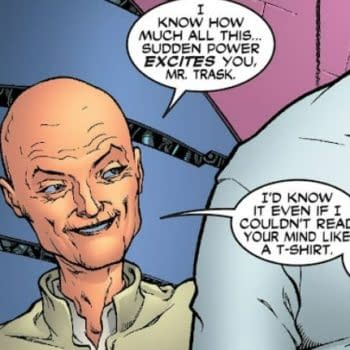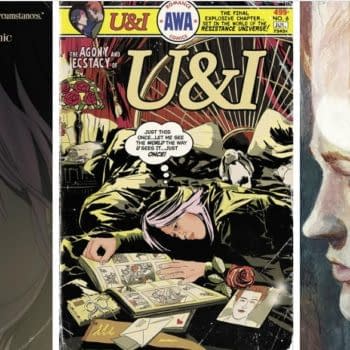Posted in: Comics | Tagged: Comics, entertainment
A Few Thoughts About The CBLDF Statement On Milo Yiannopoulos
Bleeding Cool has published a couple of stories in recent days regarding CBLDF's public support for Simon & Schuster and their publication of the autobiography of Milo Yiannopoulos, Dangerous – and the reaction to the news, including a proposed boycott of Simon & Schuster.
The reaction has been overwhemingly negative. But, I thought I'd look at some nuances that some people may have missed out on.
Firstly, the definition of censorship. Some people say that this only applies to a governmental body. That's just not true, while a censor is an official job, censorship is to "act like a censor". It does not need to be the act of a government body. It also seems ludicrous to say that Amazon banning the sale of a book is not censorship but a small public library taking a book off its shelves after a complaint, is.
There is also a qualitative aspect to the use of the word – that it has to be bad. So that censorship that someone approves of can't be censorship, it has to be something else. I would argue that boycotting a publisher to the extent that they are forced to withdraw a book from sale does count as censorship, given the impact that it can have. But that this is not necessarily a bad thing, it just has to be recognised for what it is.
This is also a result of the peculiarly wonderful attitude the USA has. The very first amendment to the constitution is there to preserve free speech, and it is legal for people to say or publish things in the USA that would be banned, would be illegal, would be prosecuted under hate speech legislation in the UK, where I am writing this. Indeed, it looks as if Dangerous won't be published by Simon & Schuster in the UK because of those laws.
It seems to me this gives many Americans a distasteful gut reaction to the concept of censorship – or the charge that what they are doing is censorship, as such a thing is, by its nature, anti-American. Whereas other people, don't have the same instinctive reaction.
But to the matter in hand.
The CBLDF published a letter written by the NCAC, the National Coalition Against Censorship, a group they are part of. They co-sign many such letters each year covering many issues regarding free speech.
Supporting a publisher is not the same as supporting an author. Supporting a right for Simon & Schuster to publish is not the same as supporting a right for Milo to be published.
The CBLDF is not claiming anyone is censoring anyone in this matter.
They have spent none of their funds on supporting Simon & Schuster in this endeavor, and there is no active involvement in pursuing a case.
The CBLDF is not anti-boycott. They and the NCAC support boycotts and the right to object, as well as the right for publishers to publish controversial material. The intent is to establish boycotts are a right, but people should consider a line-wide boycott against a publisher like Simon & Schuster more carefully.
And Simon & Schuster publish comics.
It had been alleged that the CBLDF issued this statement because they Simon & Schuster is a big donor. This is not the case, the CBLDF publisher donors are listed on all their publications. There are many, including book publishers, but not Simon & Schuster.
As for the CBLDF's involvement with the NCAC, they helped the CBLDF defend against comic book censorship many times, including recent examples against Persepolis.
And as for the boycotts… again, these have a tendency to snowball. Such as that of creator Christopher Sebela.
And the books he writes which are sold/distributed by… Simon & Schuster.
Could there be room for some for a boycott closer to home?
Some people do have fundamental disagreements with the CBLDF over the cases it is involved with, including the original and most famous case, the defense of Mike Diana over the small press comic Boiled Angel, with Diana being taken to court and sentenced for obscenity, including being forbidden to draw.
They at least are consistent in their criticism, and it is a defensible position to take.
But those who have supported the CBLDF for defending free speech that they approve of, only to turn on it for defending free speech that they don't approve of – simply don't believe in free speech.
And that's okay too. Because, yes, free speech can be misused. But does that stop it being free speech?
You don't actually have to believe in it. But then it's probably worth recognising that.
Feel free to tell me how wrong I am in the comments.















